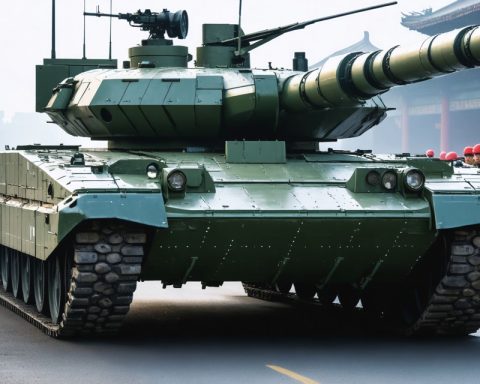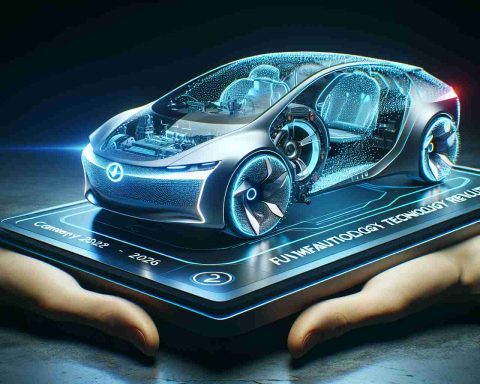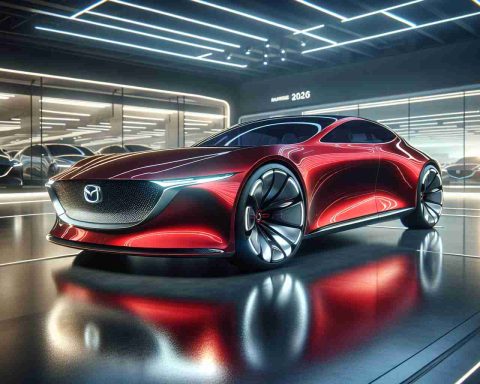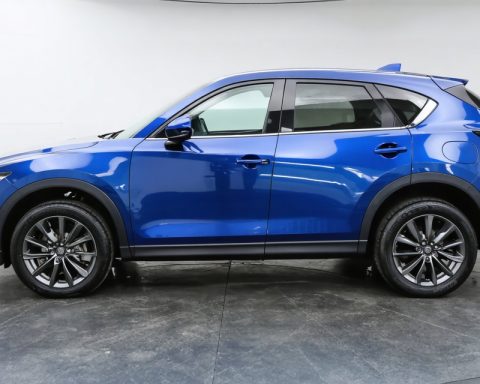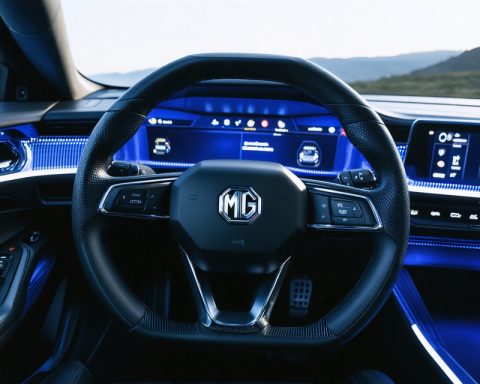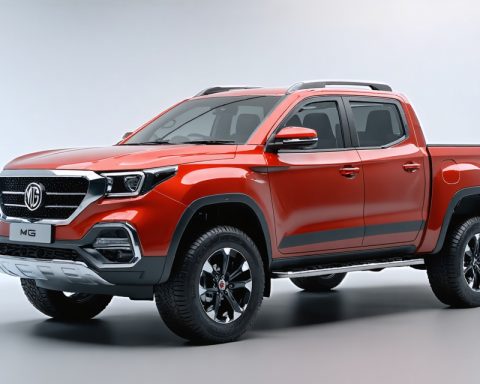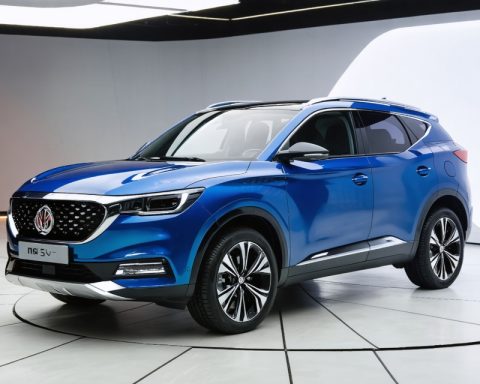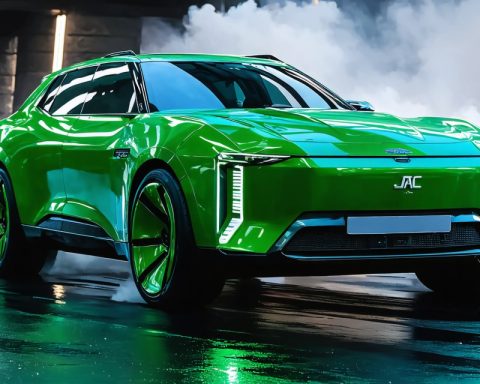- Porsche leads a project to recycle high-voltage EV batteries, turning waste into valuable resources.
- The process extracts nickel, cobalt, manganese, and lithium, creating “black mass” for refinement.
- Approximately 65 tonnes of “black mass” have been collected for high-purity material separation.
- Porsche aims to meet future European regulations requiring increased recycled content by 2031.
- The initiative reflects Porsche’s commitment to a circular economy and sustainable practices.
- Recycled battery cells will undergo real-world testing in upcoming Porsche models.
- Porsche’s strategy aligns with its legacy of excellence and environmental stewardship amid geopolitical and resource challenges.
Amidst a landscape where sustainability increasingly drives innovation, Porsche accelerates into a pioneering role with a transformative project that could redefine the future of electric vehicle (EV) battery production. The revered automaker has embarked on a dynamic multi-phase trial that seeks to recycle high-voltage EV batteries, converting them from mere waste into invaluable resources.
Picture this: mountains of decommissioned battery cells, their initial energy spent, take on new life as they undergo a sophisticated mechanical shredding process. Through this method, Porsche extracts the vital raw ingredients—nickel, cobalt, manganese, and lithium—from these batteries, transforming them into what’s termed “black mass.” This isn’t just about recycling; it’s an alchemical pursuit to reclaim and repurpose critical materials that power our electrified future.
So far, these efforts have amassed approximately 65 tonnes of this granular treasure. Each morsel of “black mass” then undergoes rigorous refinement, as Porsche works to meticulously separate the core elements, ensuring they reach the pinnacle of purity required for crafting high-performance batteries. The automaker insists on maintaining immaculate standards, where every extracted mineral must match the stringent quality benchmarks synonymous with Porsche’s legacy of excellence.
Beyond the promise of sustainable resource recycling, Porsche’s initiative is a strategic maneuver. As Europe braces for stringent battery regulations forecasted for 2031, which will mandate increasing levels of recycled content, Porsche’s foresight positions it as a vanguard—proactively aligning its practices with future industry expectations.
In the final phase of their pilot, Porsche envisions manufacturing battery cells enriched with recycled content, subjecting them to real-world testing in forthcoming models. This approach isn’t just a technological advance; it’s a testament to Porsche’s commitment to the circular economy, securing material supplies while mitigating environmental impacts.
Barbara Frenkel of Porsche’s Executive Board for Procurement emphasizes that this circular strategy is an unshakable pillar of Porsche’s sustainability ethos—a calculated stride towards integrating ecologically sound practices with state-of-the-art automotive excellence.
As geopolitics sway global markets and resources grow scarce, Porsche’s pilot project does more than hint at a greener tomorrow—it’s a masterclass in how forward-thinking companies can navigate and shape a sustainable future. So, while most may see a depleted battery, Porsche sees potential—a powerful emblem of both technical prowess and environmental stewardship.
Porsche’s Revolutionary Step Towards a Sustainable EV Future: What You Need to Know
In a world where sustainability is no longer just a choice but a necessity, Porsche is setting the bar high in electric vehicle (EV) innovation. With its groundbreaking project to recycle and reclaim materials from high-voltage EV batteries, Porsche aims to redefine what’s possible in battery production and set an industry standard for sustainability. Here’s an in-depth look at this game-changing initiative and its implications for the future.
How Porsche is Revolutionizing EV Battery Recycling
The Multi-Phase Recycling Process
Porsche’s initiative begins with the mechanical shredding of decommissioned battery cells. This phase breaks down the batteries to extract key materials such as nickel, cobalt, manganese, and lithium, ultimately transforming them into “black mass.” This granulated material is then refined to achieve high-purity levels essential for creating high-performance batteries. This method ensures the materials meet Porsche’s stringent quality standards, synonymous with their brand of excellence.
Key Materials and Their Importance
– Nickel and Cobalt are crucial for battery life and energy density.
– Lithium plays a significant role in battery performance and longevity.
– Manganese improves safety and lowers costs, making the batteries more efficient.
By reclaiming these core materials, Porsche not only reduces waste but also safeguards against resource scarcity—a critical concern given current geopolitical climates.
Real-World Use Cases and Strategic Importance
Porsche plans to incorporate these recycled materials into new battery cells, testing them in upcoming EV models. Such steps align Porsche with anticipated European regulations set for 2031, which will require a higher percentage of recycled content in batteries. This proactive approach places Porsche as an industry vanguard, well ahead of regulatory curves.
Industry Trends and Market Forecasts
The global EV battery recycling market is expected to grow substantially, driven by increasing adoption of electric vehicles and stringent regulations on battery waste disposal.
– Market Growth Projection: Expected CAGR of around 19% through 2031.
– Industry Trend: Companies are increasingly adopting circular economy models to ensure sustainable growth and compliance with environmental standards.
Controversies and Limitations
While Porsche’s project is groundbreaking, challenges persist:
– Technological Limitations: Achieving the required purity levels of raw materials can be technologically challenging.
– Economic Viability: The cost-effectiveness of recycling processes is still under scrutiny.
– Environmental Concerns: Despite improvements, recycling processes still have environmental impacts that need addressing.
Immediate Benefits and Actionable Tips
– For Consumers: Look for brands that prioritize sustainable practices to make eco-friendly purchasing decisions.
– For Industry: Consider investing in R&D for battery recycling technologies to stay ahead of regulatory demands.
Pros & Cons Overview
Pros
– Reduction in environmental waste and resource scarcity.
– Alignment with future regulatory standards.
– Brand enhancement through sustainable practices.
Cons
– Expensive and complex recycling process.
– Technological hurdles in achieving purity standards.
Conclusion: A Sustainable Future Awaits
Porsche’s commitment to battery material recycling is not only a step towards sustainability but also a powerful strategic move that positions them as a leader in the automotive industry. Companies looking to survive and thrive need to adopt similar forward-thinking practices. For more insights on innovative automotive solutions, visit the official Porsche website.
Quick Tips
– Stay informed about the latest in EV technology and sustainable practices.
– Support brands committed to sustainability to encourage more eco-friendly products.







